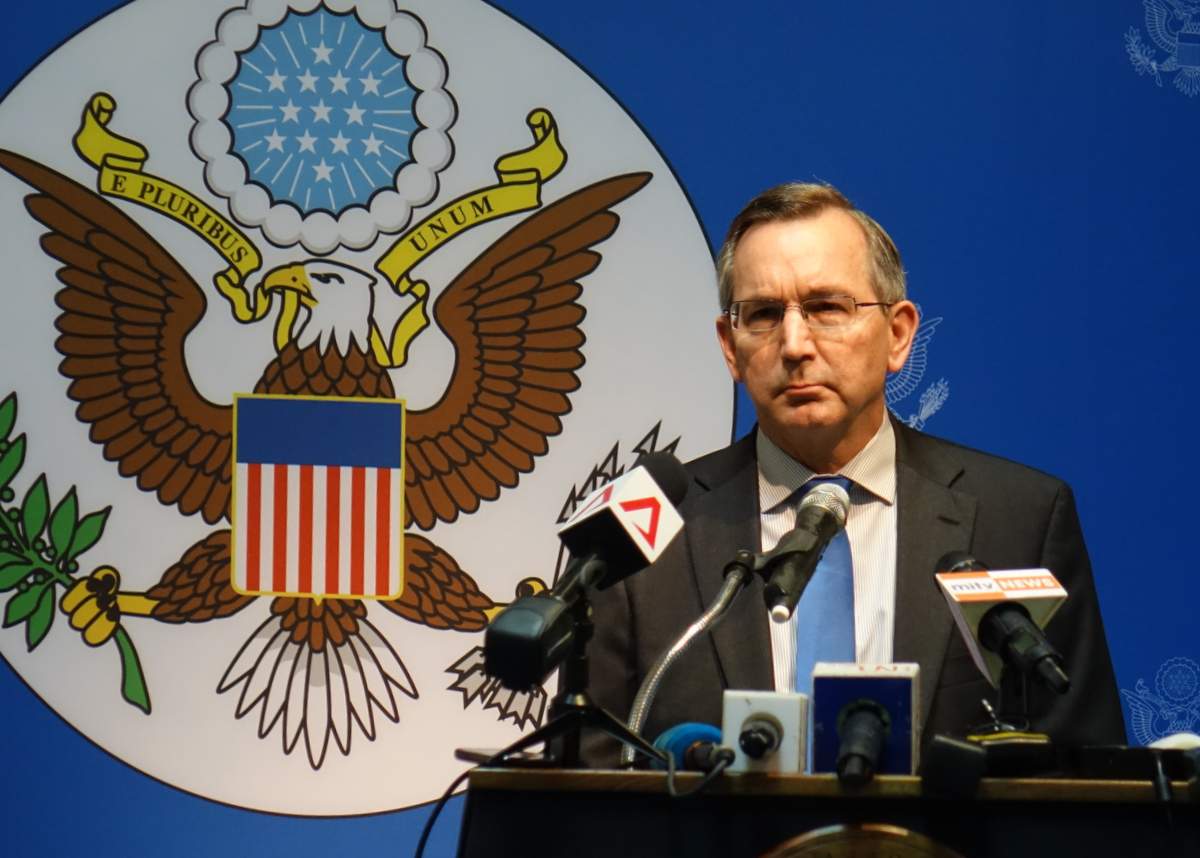US Ambassador to Burma Scot Marciel took to a podium in Rangoon on Tuesday and sought to assure the public that the United States remains squarely in the corner of the country’s people, even as new challenges emerge throughout a rocky transition to civilian rule.
“A lot has changed, but our goal, the United States’ goal, remains the same,” Marciel told journalists, businesspeople and civil society actors at the American Center in the former capital. “We want to see a peaceful, prosperous, democratic nation, in which people live in harmony and enjoy full rights.”
The United States’ relationship with Burma has changed rapidly since the start of a transition to democracy in 2011 after decades of military dictatorship. Long-standing economic sanctions have been eased to allow trade and development assistance, and the United States has initiated limited military-to-military engagement geared toward reform. In 2012, Marciel’s predecessor, Derek Mitchell, was appointed as the first US ambassador to Burma since 1990.
In his first public address since becoming Burma’s second US ambassador in April, Marciel explained the changing nature of US-Burma policy, forecasting a review of current sanctions and emphasizing US support for trade and economic development, particularly in the agricultural sector.
Marciel said the United States will maintain its strategy of reviewing and adjusting its policy as new needs arise to meet the country’s many diverse challenges, which include a fragile peace process, a shattered economy and ongoing human rights abuses.
Foremost in the minds of nearly all reporters present on Tuesday was how the United States would respond if Burma’s new government fails to act to improve living conditions for Rohingya Muslims, a stateless minority in Arakan State, where a series of riots beginning in 2012 left more than 100 people dead and some 140,000 others displaced.
Most of those displaced were Rohingya, who are denied citizenship and basic rights. The country’s new National League for Democracy-led government appears to be maintaining the position of the former military regime, which rejected the name “Rohingya” and referred to the group instead as “Bengali”, implying that they are illegal immigrants from Bangladesh.
[related]
The embassy was swept up in controversy last week as reports emerged that the government’s de facto leader, Aung San Suu Kyi, advised Marciel against using the word “Rohingya” to refer to the country’s beleaguered minority.
Asked about his meeting with Suu Kyi, who among her several official titles serves as foreign minister, the ambassador declined to comment on what he called “private diplomatic conversations”.
He did, however, reiterate his position that members of ethnic groups have the right to self-identify as they see fit.
“They get to choose what they want to be called,” he said, without actually referring to the Rohingya by name.



